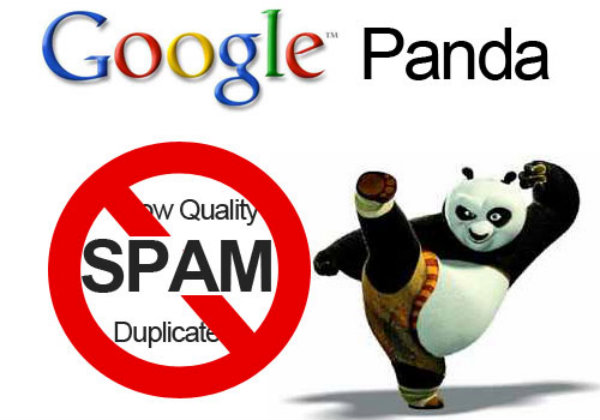When you type a query into Google there are millions of web pages with information that could match that query. But a list of pages with information that may be close to what you’re looking for isn’t all that helpful. If you type in the name of an author you don’t want a list of every book that ever existed. You want the closest possible match. That’s were algorithms come in.
Algorithms are computer programs that search for clues all across the internet in order to give you exactly what you want. Its job is to take your query and give you the closest match it can find. To do this these algorithms rely on unique factors to assist them with your query. These factors include things like keywords on a website, the age of a blog’s content, page rankings and more.
What is the Panda Algorithm?

The Panda algorithm is the official name of Google’s algorithm update. This update was developed to reduce the widespread presence of low quality, diminished content in search results, while elevating and rewarding unique, engaging content. The Panda algorithm gives websites and blogs a quality classification (modeled after human quality ratings) that’s incorporated as a ranking factor.
With so much information available online, Google is basically doing its best to filter out spammy content from questionable sources. This is done to improve search results and the overall user experience of anyone who uses Google’s search engine.
The Impact on SEO Strategy
Since the Panda algorithm elevates the performance of websites and blogs with content that’s categorized as being of “high quality”, the trick to having a successful digital marketing and SEO strategy is to increase the quality of your content.
You can streamline your existing content by following a few simple steps…
- Remove content that never performed well (based on page views and other interactions).
- Fix up any grammar mistakes such as spelling errors and badly formed sentences.
- Use unique bios for your writers and contributors.
- Combine pages about the same topic into single pages.
- Avoid the excessive use of adverts.
- Keywords are important in SEO but don’t overdo it or the algorithm will think you’re just in it for the search engine ranking and flag your site as spam.
How Will the Panda Algorithm Affect Your Blog?
The Panda Algorithm doesn’t have to affect your blog at all. The best way to prevent being penalized by the algorithm is to create content that’s worthy of being categorized as high quality. Here are a few ways to create content that will measure up the Panda algorithm standards.
- Create Unique Content
When creating content for your blog make sure it’s unique, informational and valuable to your readers. If your content is useful and engaging, it means that your blog has something others don’t. This gives you the ability to stand out from a thousand other blogs.
- Content Length
Your content needs to be of reasonable length and value. Anything under 600 words may be too little, but at the same time you want to avoid being too wordy. Try to aim for a 700 word average for your posts and rewrite existing content if necessary.
- Fast Loading Pages
Blogs and websites that load quickly get preference on search engine ranking pages resulting in more site traffic. This will add value and credibility to your blog.
- Link Building
Take some time to focus on link building within your own blog. Backlinking new content to old content that performed well will improve your search engine ranking.
- Improve Page Structure
Always make sure that each page on your blog has a logical structure. This should include a header, page title, subheadings, text (with the body separated into reader-friendly paragraphs), a footer and author details. Each page should also have unique title and description.
Conclusion
As a general rule publishing content just for a quick web traffic boost is never a good idea. This is actually the reason behind the Panda Algorithm. A lot of blogs and websites create content for traffic and ad clicks only. They actually add very little, or no value to the digital world.
Always remember that people want unique, quality content that adds value to their online experience. If you stick to the content creation etiquette in this post, your blog will always be on the right track.
Related read: How to Get Page 1 Rank in Google?